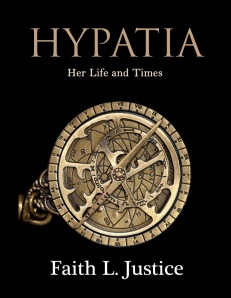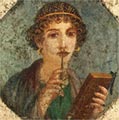I see these things going around the internet all the time: “Name ten things that no one else knows about you.” “Name five books that changed your life.” AND “Tap ten of your nearest and dearest to answer the same question.” Shades of chain letters past. Although some are fun and others are silly, all are time sucks. I have to choose carefully or I’d never get anything done. But every now and again one comes along that I’m glad to participate in. The Writing Process Blog Tour is one, because it asks the questions that most readers are interested in knowing about their favorite authors.  Thanks to Judith Starkston for asking me to join in. Judith shares my love of ancient history, penchant for visiting archaeology sites, and mission to highlight forgotten women. She has a wonderful novel coming out this month titled Hand of Fire: “The Trojan War threatens Troy’s allies and the Greek supply raids spread. A young healing priestess, designated as future queen, must defend her city against both divine anger and invading Greeks. She finds strength in visions of a handsome warrior god. Will that be enough when the half-immortal Achilles attacks? Hand of Fire, a tale of resilience and hope, blends history and legend in the untold story of Achilles’s famous captive, Briseis.” You can see Judith’s contribution to the blog tour here and contact her through her website, Facebook, or twitter. So here goes:
Thanks to Judith Starkston for asking me to join in. Judith shares my love of ancient history, penchant for visiting archaeology sites, and mission to highlight forgotten women. She has a wonderful novel coming out this month titled Hand of Fire: “The Trojan War threatens Troy’s allies and the Greek supply raids spread. A young healing priestess, designated as future queen, must defend her city against both divine anger and invading Greeks. She finds strength in visions of a handsome warrior god. Will that be enough when the half-immortal Achilles attacks? Hand of Fire, a tale of resilience and hope, blends history and legend in the untold story of Achilles’s famous captive, Briseis.” You can see Judith’s contribution to the blog tour here and contact her through her website, Facebook, or twitter. So here goes:
What am I working on?
 Several projects in various stages. My most complete projects are two collections of short stories that are currently out as ebooks: Time Again and Other Fantastic Stories and Slow Death and Other Dark Tales. I’m proofing the print versions and recording the audio books. I’m in the final editing process of a historical novel Sword of the Gladiatrix which I’m very excited about. Here’s the back cover blurb: “Two women from the far reaches of the Empire, enslaved and forced to fight for their lives on the hot sands of the Roman amphitheater. They seek to replace lost friendship, love, and family in each other’s arms. But the Roman arena offers only two futures: the Gate of Life for the victors or the Gate of Death for the losers.” I hope it’s out by the end of the year. I’m also doing a final rewrite on another novel Twilight Empress (#1 of the Three Augustas series) and a novella prequel which I hope to get out next year. I’m in the early rewrite stages of two other books in the Three Augusta’s series. As far as new writing goes, I’m in the very earliest stages of writing a sequel to Sword of the Gladiatrix—which, unfortunately, has been taking a back seat to all these other projects. (more…)
Several projects in various stages. My most complete projects are two collections of short stories that are currently out as ebooks: Time Again and Other Fantastic Stories and Slow Death and Other Dark Tales. I’m proofing the print versions and recording the audio books. I’m in the final editing process of a historical novel Sword of the Gladiatrix which I’m very excited about. Here’s the back cover blurb: “Two women from the far reaches of the Empire, enslaved and forced to fight for their lives on the hot sands of the Roman amphitheater. They seek to replace lost friendship, love, and family in each other’s arms. But the Roman arena offers only two futures: the Gate of Life for the victors or the Gate of Death for the losers.” I hope it’s out by the end of the year. I’m also doing a final rewrite on another novel Twilight Empress (#1 of the Three Augustas series) and a novella prequel which I hope to get out next year. I’m in the early rewrite stages of two other books in the Three Augusta’s series. As far as new writing goes, I’m in the very earliest stages of writing a sequel to Sword of the Gladiatrix—which, unfortunately, has been taking a back seat to all these other projects. (more…)






 Best known for her children’s stories of wizards in Books of Earthsea and award-winning science-fiction such as The Left Hand of Darkness,
Best known for her children’s stories of wizards in Books of Earthsea and award-winning science-fiction such as The Left Hand of Darkness, 
